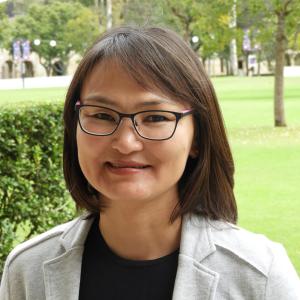The United Nations in Mongolia, the Government of Mongolia, civil society, the private sector and other key actors must join forces to deliver the human rights promise of the UN Charter and the Universal Declaration for Human Rights.
Globally, COVID-19 has profoundly affected the entire spectrum of human rights – from the right to life, an adequate standard of living, social protection, work and employment, and education, to protection from gender-based violence. It has exacerbated inequalities, poverty, food insecurity, discrimination and other human rights failures, with a disproportionate impact on those most marginalised. The global health crisis is itself a human rights crisis.
The COVID-19 has affected Mongolia in many ways. The spread of the virus exacerbated pre-existing issues such as overburdening the healthcare system and bringing poverty and hunger back on the rise. The lockdowns and COVID-19 prevention measures are having an impact with far-reaching consequences on the most fundamental rights and freedoms of the people in Mongolia, including thousands of people who lost their jobs and income and SMEs closing down. It particularly hit hard informal workers and their families, who also less benefited from the Government support. Many people, including those who were never considered at risk, are struggling to meet basic needs including adequate food and nutrition. Children were affected by school closures and many have struggled with the realities of remote learning and without tools to do so. Domestic violence against women and children has risen significantly and is another form of widespread concern that affects the well-being of many as they were locked down with their abusers.
People’s movements have been and are restricted and monitored through digital devices in efforts to contain the spread of the virus. Many Mongolians abroad could not return home due to border closures. People’s frustration and discontentment are increasingly voiced, leading to public outcry both online and offline. Stigma and discrimination, at times, hate speech are there against certain groups and individuals, including the COVID-19 patients and essential frontline workers. Media have expressed their concerns on restrictive measures aimed to curb infodemics which pose risks to freedom of expression and civic space. In order to combat COVID-19, the importance of universal access to accurate health and other information, in formats and through media accessible to all, is extremely important.
The UN in Mongolia is concerned that our hard-won gains in sustainable development will be lost. The UN Secretary-General’s Call to Action on Human Rights is a comprehensive framework to protect the gains we have managed to achieve as we strive to advance our most important work — from sustainable development to climate action, from protecting fundamental freedoms to gender equality, the preservation of civic space and ensuring that digital technology is a force for good.
Echoing the UN Secretary-General’s messages, the UN in Mongolia, therefore, call on the Government of Mongolia to take further action to protect and promote human rights and ensure they remain at the core of all work, including emergency measures and recovery efforts to build a better and more sustainable future for all Mongolians. By respecting human rights in this time of crisis, we will build more effective and inclusive solutions for on-going emergency of today and the recovery for tomorrow and the future. We stand ready to support Mongolia’s efforts to uphold human rights.









